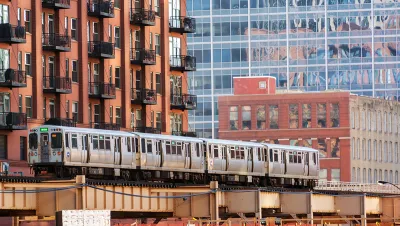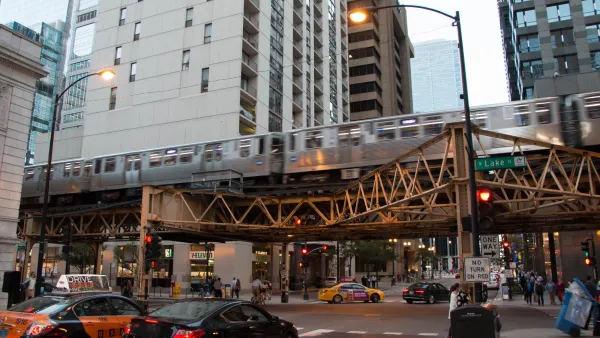A "TOD Calculator" developed by a Chicago non-profit promises to deliver quantifiable, digestible data on the community impacts of transit-oriented development.

The Grow Chicago "TOD Calculator," created by the Metropolitan Planning Council, uses public data to visualize information on a specific address in Chicago—from its zoning code and proximity to transit, to projections of the annual retail revenue, tax income, on-site jobs, and transit ridership a project built there could generate.
Since its release six months ago, developers, residents, aldermen, and small business owners have used the calculator to judge the impact of potential projects on their own communities.
The data has also influenced regulation—helping convince Chicago to expand its 2013 TOD ordinance by increasing the allowed distance from transit, eliminating parking minimums, and adding density bonuses.
Chicago is hardly the first city to look to open data projects for efficiency, transparency, and shared information to help guide policy. But as Sean Thorton, a fellow with Harvard’s Data-Smart City Solutions initiative, points out, data tech alone is not a magical fix for human, urban problems:
It’s true that without open data, the Calculator would not have been possible to build. Yet MPC’s creative work shows that the effectiveness of data portals themselves also has a ceiling. In order for open data to reach its full potential, those who consume it must be willing to take on complex tasks—like MPC and its partners did—to create tools and products that effectively educate and benefit the public.
The Grow Chicago interactive tool has been joined in recent months by other open data portals, such as OpenGrid in Chicago and GeoHub in Los Angeles.
FULL STORY: How Open Data Can Help Encourage More Transit-Oriented Development

Analysis: Cybertruck Fatality Rate Far Exceeds That of Ford Pinto
The Tesla Cybertruck was recalled seven times last year.

National Parks Layoffs Will Cause Communities to Lose Billions
Thousands of essential park workers were laid off this week, just before the busy spring break season.

Retro-silient?: America’s First “Eco-burb,” The Woodlands Turns 50
A master-planned community north of Houston offers lessons on green infrastructure and resilient design, but falls short of its founder’s lofty affordability and walkability goals.

Test News Post 1
This is a summary

Analysis: Cybertruck Fatality Rate Far Exceeds That of Ford Pinto
The Tesla Cybertruck was recalled seven times last year.

Test News Headline 46
Test for the image on the front page.
Urban Design for Planners 1: Software Tools
This six-course series explores essential urban design concepts using open source software and equips planners with the tools they need to participate fully in the urban design process.
Planning for Universal Design
Learn the tools for implementing Universal Design in planning regulations.
EMC Planning Group, Inc.
Planetizen
Planetizen
Mpact (formerly Rail~Volution)
Great Falls Development Authority, Inc.
HUDs Office of Policy Development and Research
NYU Wagner Graduate School of Public Service




























